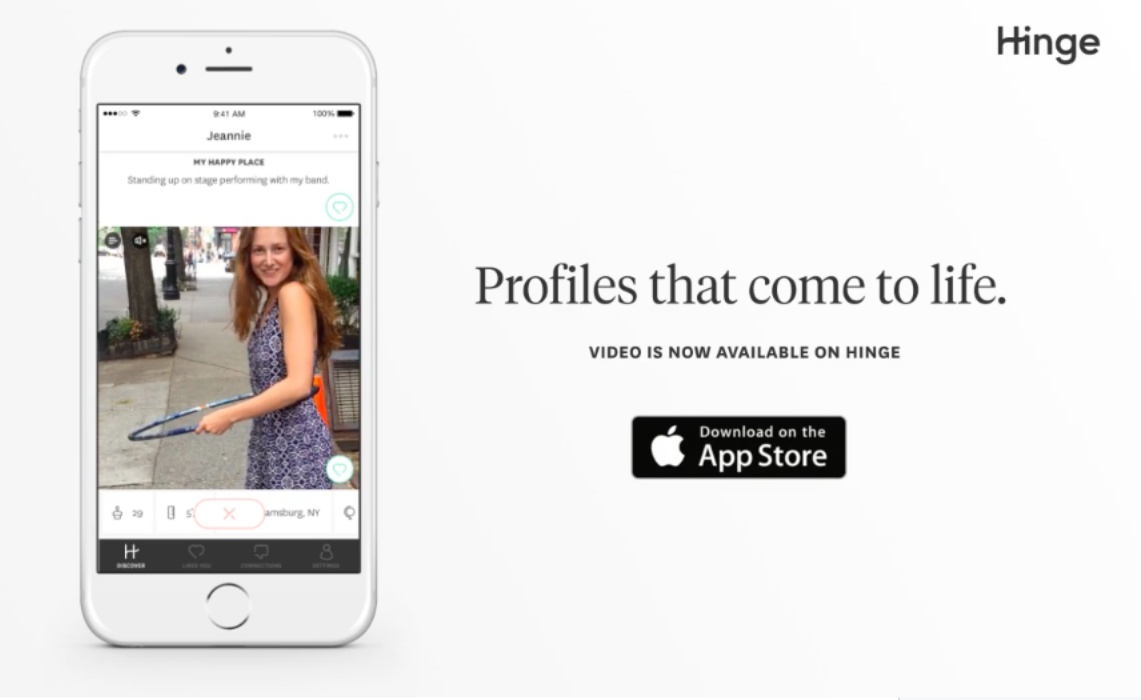# **Reading Responses Set 2**
____
## Data Harvesting and Online Advertising; *eMarketing* Reading Response
### March 1

Online advertising has become highly salient in today’s culture—but has it gone too far? In his text *eMarketing*, Stokes lays out a detailed how-to guide for online advertising campaigns. First off, he lays out high-level objectives associated with online advertising: brand awareness, which exists across advertising platforms, and satisfying demand immediately, something lesser-known to traditional advertising. After establishing the types of online advertisements, Stokes lays out the locations where ads go online with a particular focus on social media. Across the board, social media advertising typically involves exposing users to ad content that (a) looks like a native social media post and (b) appears without user consent. Here’s where it gets creepier: Stokes lays out several ways to track user information, from location to online behavior. What’s worse, all of this targeting and habit-tracking is identified as the specific reason why online ads are “superior.” Data collection is then identified as two of the nine steps to “ensure that you can run effective adverts.”
I found Stokes’ guide to online advertising troubling. This is an educational text meant to explain exactly how to advertise online, and user information tracking is baked into fundamental methodology. However, I do truly believe that some tracking is actually good for the consumer; I would rather see ads that I care about based on my interests. Unfortunately Stokes lays out these elements without considering consumer interests—not everyone may want their locations or behavior tracked, and it’s not ok to rely on this for all your advertising. In my perfect world, users are given more information about the information being tracked and must opt-in to turn on this information tracking. Stokes does identify an important point at the end of the text, that the advertising is intrusive and users are suffering from what he calls advertising fatigue—they no longer look at ads and have become increasingly savvy at blocking them. I work in marketing and have found this to be true. Consumers hate ads. They oftentimes hurt branding efforts. To remedy this, there has been a massive shift towards “branded content,” high-production editorial content meant to inform consumers without just selling a product. If data tracking becomes highly regulated (which I’m confident that it will), brands will need to rely on the creation of interesting and engaging content—not just data harvesting—to survive.
## Online Dating
### March 15
Online dating—is it ruining relationships? That is the question this series of readings seeks to answer. OkCupid’s *The Big Lies People Tell In Online Dating* paints a fairly unflattering image of the medium. The article explains that there are several things people oftentimes lie about online including height, income, and physical appearance. Lying is certainly problematic, but is there inherent racism present on these platforms? OkCupid performed several studies on race and found a few troubling results. While some findings seemed benign (Black women respond the most, White men get the most responses), there were sinister undertones as well. For example, while Black women reply the most, men respond to Black women the least. Further, OkCupid asked its users “is interracial marriage a bad idea” and “would you strongly prefer to date someone of your own skin color.” In both instances, white males and females reported “yes” more than any other racial groups. While OkCupid’s studies proved cautionary, there are some people excited about the prospects of finding love online. Michael Rosenthal, for example, has been studying online dating for years. He believes that online dating platforms are helping users meet better matches and ultimately marry the right people—but not before experimenting with a wider market than one may have otherwise.
I tend to agree with Rosenthal. I believe we make snap judgements about who to date all the time, meaning romance typically starts at the level of physical attraction regardless. Further, dating apps such as Hinge are actually doing a good job of integrating personality traits deeper into the decision-making process. I also believe that lying on a dating profile will only get you so far—if you show up to a first date looking entirely different than you do in your profile picture, there probably won’t be a second. Finally, new age dating apps have gotten significantly better about verifying information and this seems to be the direction the medium is taking.

Hinge, the popular dating app that integrates personality traits into the swiping process.
## Racist Manipulation
### March 19
Is Google Racist? That is the key question examined in Rutherford and White’s *This is why Some People Think Google’s Results are ‘racist,’* a collection of anecdotes about users finding racist search results such as mugshots when one searches “three black teenagers” as compared to stock photos of kids with athletic equipment upon a search for “three white teenagers.” Google received heat for their “Eurocentric” platform but claimed that their search results weren’t racist. Search is meant to reflect greater society—who is searching for what and how often—therefore Google claimed that the questionable results stemmed from structural racism. Interestingly enough, several other internet platforms also denied manipulation. In Hannak, Soeller, Lazer, Mislove, and Wilson’s *Measuring Price Discrimination and Steering on E-commerce Web Sites*, price discrimination was found on several popular online platforms. Worryingly, some findings suggested serious price manipulation. Home Depot’s website would push more expensive results to users who visited on a mobile device. This could be because users on their phones are more likely out and about, meaning they have less time to perform significant research before purchase. The study also found that Expedia was price steering for rental cars—even though their chief of product vehemently denied it. Across both articles there is clearly a negative stigma about search manipulation.
I can attest to price manipulation first-hand. In the fall I was looking to update my credit card. I spent an afternoon comparing different options, ultimately deciding to apply for one that looked appealing. Naturally I began to receive ads for this particular brand. What’s interesting, however, is that the ads I saw on my mobile device showed a significantly better introductory offer than the ads I saw on my desktop. I had yet to look for credit cards on my phone but had been looking on my computer for a few hours. I ended up taking the mobile offer and getting the bigger reward, but what if I hadn’t randomly decided to look on my phone? I would assume they only dish out the eye-popping benefits to users who have not been on the site before or are more likely to make a spur of the moment decision (looking on mobile). It was an interesting—albeit disconcerting—revelation.
## It's Complicated: *How do you Know* Reading Response
### March 22
Online communication is messy, particularly so when relationships are on the line. This mess is exemplified in Gershon’s *How do you Know*, a summary of the state of relationships (mostly breakups) as they relate to online communication. Gershon begins with an explanation of “Second Order Information,” the contextual-based meanings embedded within online messages. This type of information is commonly present during breakups; for example, when a girl posts song lyrics on Facebook that relate to the end of her relationship. These messages make for complex, often soap opera-e, communication conflict. More complex, however, is the “relationship status” field on Facebook. This section is used for a wide variety of communicative purposes. Some are serious about it as a marker for their current relationship status. Some use it to show too much dedication to their best friends (despite being in a relationship for the past two years my “domestic partnership” with a friend from home is ongoing). Others use it as a placeholder for when they will be in an actual relationship, a tool to test potential partners. User relationship status with this feature: “It’s complicated.”
While an important summary of user behavior from a particular era, an increasingly-savvy user base has significantly altered the way we look at relationships in the digital space. Users today have found much more efficient ways to suggest their relationship status—every person I know in a long-term relationship has posted at least one picture of their partner in the last few months for example. Further, relationship statuses have mostly become a joke. As aforementioned my current relationship status is nowhere near up to date and hasn’t been for at least five years. Upon reading about the feature, I asked two friends of mine who are in a relationship if they had updated their individual profiles. They said they both have them updated but did it over a year after the fact and mostly to be ironic. It appears, at least in my circle, that relationship status has become the privacy line users are unwilling to cross.
## Radical Transparency: Chapter Five Reading Response
### March 29
Online communication is harsh—so harsh that Reagle notes in *Reading the Comments*, “comment sections can quickly fill with posts that would’ve shamed Hitler himself.” *Reading the Comments* suggests that this shift is primarily due to the lack of social cues that traditionally regulate interpersonal exchanges. Further, perceived anonymity is something that can bring out the worst in people. Take Plato’s story of Gyges for example; using an invisibility ring Gyges had sex with the queen and killed the king to ultimately take the throne himself. If people do identify themselves, discussions can sometimes be tamer. Sometimes. Some trolls live for the craft and happily take credit for doing so. Milo Yiannopoulos is one of those people. An openly gay conservative, Milo made a name for himself by attacking liberal ideology and using sexist/racial slurs to make a statement about contemporary politics. In one particularly egregious stunt he got into a sexism-driven Twitter feud with SNL actress Leslie Jones then criticized Twitter for limiting free speech when he was banned from the platform. Sexism in online communication is becoming common (Milo being a leading force), especially in information technology forums (Milo happens to be Breitbart’s tech editor). Despite these complaints, many believe in the concept of free thought as a means to grow.
Ray Dalio is the CIO and co-founder of Bridgewater associates, one of the wealthiest hedge funds in American history. What does Bridgewater have in common with the “free speech community?” Radical Transparency. Dalio founded Bridgewater on the idea that honest feedback leads to the most productive working environment. He encourages employees to deeply criticize each other’s work, his in particular. While it can be difficult to handle, this strategy oftentimes leads to the best work. What’s the caveat? People. Dalio is looking for people with extreme growth mindsets, people who are able to take harsh criticism and act on it. Radical transparency is a fantastic strategy for a small percentage of the population. The internet has taken this concept and opened it up for everyone. Back to the chapter—the free speech community is right that harsher comments can lead to better work (unless they’re racist, sexist, etc.). But only for some. Others need positive encouragement, coaxing, outside positive motivation. The internet isn’t one big hedge fund.
For more on Bridgewater associates, check out Ray's Ted Talk
<iframe width="617.5" height="268" src="https://www.youtube.com/embed/HXbsVbFAczg" frameborder="0" allow="accelerometer; autoplay; encrypted-media; gyroscope; picture-in-picture" allowfullscreen></iframe>